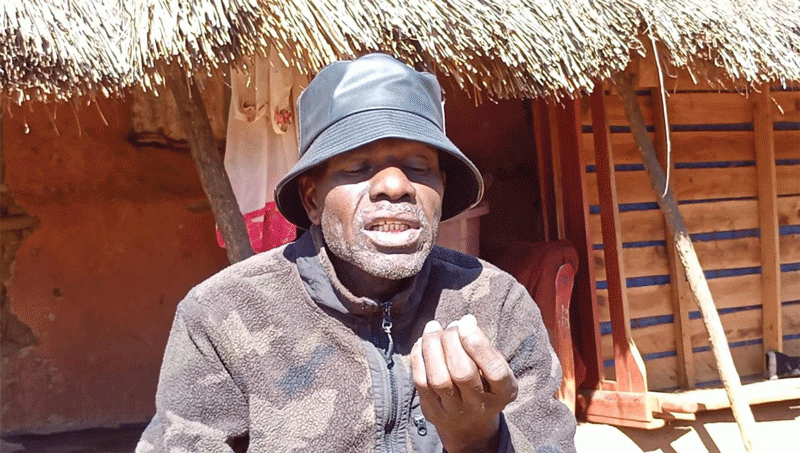
ZIMBABWE is a developing country which is highly vulnerable to climate change. To reduce its greenhouse gas emissions and transition to a clean energy economy, the country has enacted several laws and regulations related to carbon credits.
Carbon credits are measurable, verifiable emission reductions from climate action projects. For example, a project that plants trees or installs renewable energy will generate carbon credits. These projects reduce, avoid or remove greenhouse gas emissions. Moreover, they also bring a whole host of other positive benefits, for example, they empower communities, protect ecosystems, restore forests or reduce reliance on fossil fuels. This article discusses the carbon credits law in Zimbabwe.
The primary piece of legislation governing carbon credits in Zimbabwe is the Carbon Credits Trading (General) Regulations, 2023 (SI 150/2023). Most noteworthy, is the fact that the regulations allow carbon credit developers to keep a greater share of the profits from their projects, than reported earlier in the year in the media. These regulations are expected to make Zimbabwe more attractive to foreign investors in carbon credit projects, as they establish a framework for the trading of carbon credits in Zimbabwe.
The regulations address the following critical areas:
- Registration of carbon credit projects: All carbon credit projects, new and existing, in Zimbabwe must be registered with the Climate Change Management Department of the Environment, Water and Climate ministry. They must be approved by the minister in consultation with the President of Zimbabwe.
- Carbon Credits Registry: The regulations establish a Carbon Credits Registry, which is responsible for the registration and management of carbon credits, as well as tracking carbon credit investments through oversight of the carbon trading market.
- Share of proceeds: In terms of the regulations, the proceeds generated from carbon credit trades, during the first 10 years of the project, will be allocated as follows: 70% to the project proponent, 30% to the environment fund in Zimbabwe. Of the 70% retained by the project proponent, at least 25% must be invested in the local community where the project is taking place. From the 11th year of the project, the share of proceeds will be renegotiated taking into account the prevailing circumstances.
- Trading of carbon credits: Carbon credits in Zimbabwe, can be traded on both the compliance and voluntary carbon markets, with the prior authorisation of the minister.
- Environmental and social safeguards: The regulations mandate that carbon credit projects to comply with environmental and social safeguards, to ensure that they do not have negative impacts on local communities or the environment.
The above regulations are a positive development for Zimbabwe. They provide a legal framework for the trading of carbon credits in the country. The Carbon Credits Trading Regulations are expected to have a number of benefits for Zimbabwe, including but not limited to:
- Promoting investment in clean energy and other projects that reduce greenhouse gas emissions;
- Creating jobs in the renewable energy and carbon trading sectors;
- Generating revenue for the government; and
- Helping Zimbabwe to meet its climate change commitments.
However, there are a number of challenges that need to be addressed in order to develop a thriving carbon credits market in Zimbabwe. These challenges include:
- Lack of awareness: Many people in Zimbabwe are not aware of the carbon credits market or the benefits of selling carbon credits.
- Lack of infrastructure: Zimbabwe does not have a well-developed carbon credits trading infrastructure. This can make it difficult for traders to find buyers and sellers of carbon credits.
- Price volatility: The price of carbon credits can fluctuate wildly. This can make it difficult for traders to hedge their risk.
- Weak enforcement capacity and penalties: The penalty for breaching the regulations is limited to suspension or cancelation of the project proponents’ registration. Unlike other jurisdictions, where breach of the carbon credits trading laws are sanctioned explicitly and constitute an offence resulting in imprisonment or a fine, the regulations in Zimbabwe, provide no punitive penalties for those engaging in projects without registration or breaching the regulations.
The government of Zimbabwe should take steps to promote awareness of the carbon credits market and the benefits of trading in carbon credits. The government should also invest in developing the carbon credits trading infrastructure. Finally, the government should work with the private sector to develop hedging mechanisms to reduce the price volatility of carbon credits. The legislature ought to also include punitive penalties in the framework to protect the various stakeholders.
Conclusion
- Renewables steal limelight in French polls
- Why we do what we do at AMH: Mafukidze
- Why we do what we do at AMH: Mafukidze
- News in depth: Zimbabwe’s push for shift to renewable energy sources gathers momentum
Keep Reading
Zimbabwe has made progress in developing its carbon credits market. The Carbon Credits Trading (General) Regulations, 2023, provide a framework for the trading of carbon credits in Zimbabwe and ensure that carbon credit projects are implemented in a sustainable and responsible manner.
The recent regulations are a positive step that is likely to attract more foreign investment in carbon credit projects in Zimbabwe. Once the challenges highlighted are addressed the law will facilitate an ideal environment for carbon credits trade in Zimbabwe.
- Beatrice Moyo is a lawyer and conveyancer practising in Zimbabwe and co-author of the Directors Handbook in Zimbabwe. The information and opinions expressed above are for general information only. Moyo can be contacted on beatricejoycemoyo@gmail.com.











